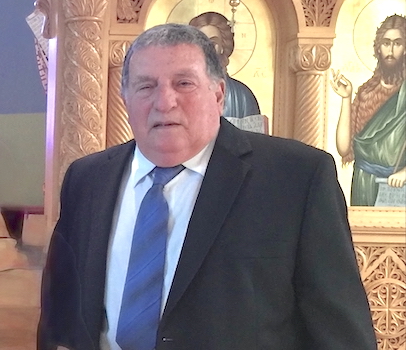The love of charity
Published 8:06 pm Friday, June 8, 2012
The English language is quickly becoming the true international language of commerce and politics. Go to Japan, or Israel, or many other countries, and you will find eager nationals ready to exchange a few words of English, some refusing to even speak in their native tongue. We, as speakers of English, know well the quirks and the fluid nature of the meanings of these words and expressions. “Cool” regularly has nothing to do with temperature. The oft-overused term “AWESOME!” frequently overstates the actual circumstances, or object.
Yet, in all these many centuries, we who use English have come up with only one word for that deepest of godly emotions, called love. At last count, the French, (go figure,) have come up with around fourteen. Sure, we try to modify it, or qualify it, with couplets such as, “selfish love,” or “unrequited love,” or “endless love.” Each fails in describing the real emotion, or commitment, for “love” itself remains undefined.
At the opposite end of the spectrum is our word “hate.” Now, in this arena we have been a bit busier in our creativity, as we have created the definitives of anger, madness, fury, wrath, rage, etcetera, and etcetera. Clearly, in our peevish nature, we have emphasized the negative side of our personas.
Trending
So, what then is this word “love?” The easiest reply it is the absence of hate, and its related brethren. It is built upon the good within ourselves and which demands the understanding and forgiveness of those who have some form of hate, within themselves. It is built upon an understanding of what God wants from us: to become as Christ-like as we can possibly be. Saint Paul, in his Letter to the Ephesians, said, ‘Let all bitterness, and wrath, and anger, and clamor, and evil speaking, be put away from all you, with all malice. And be ye kind one to another, tenderhearted, forgiving one another, even as God for Christ’s sake hath forgiven you.’ (Ep. 4:31)
At the root of this definition of love, we find the greatest of all emotions: charity. For it requires the greatest effort from us. Charity is that rarified commodity of freely giving to others, without recompense of any kind. Charity is difficult to modify from its true meaning for, in the attempt, the word becomes something else, something selfish. Like the narrow path of the Christian Faith, when we stray and have less than true charity, it leads us to sinfulness and even death.
“And now abideth faith, hope and charity, these three; but the greatest of these is charity,” strong words, again from Saint Paul. Do we have the strength of our Faith, not only in ourselves, but also in others and our God? Many would like to think so. Do we have the certain hope of a better and everlasting life? Most of us do and many are deluded in their confidence. Yet, in all of our daily cares, do we have the spark of charity within us? If we are honest with ourselves, we get distracted, or just ignore this last less than personally satisfying bit.
Why not take “charity” for a spin around the block. Find someone who is in real need of being uplifted, by thought, word, or deed. Give of yourself, generously, without expecting anything. Your actions will bring the greatest gift; bringing you closer to the truth of the “love” of God.





